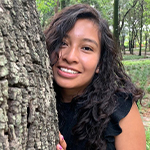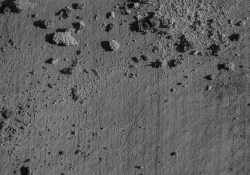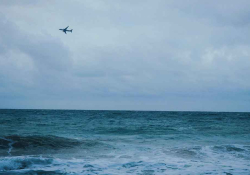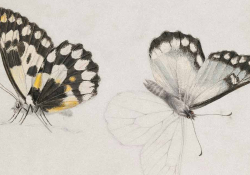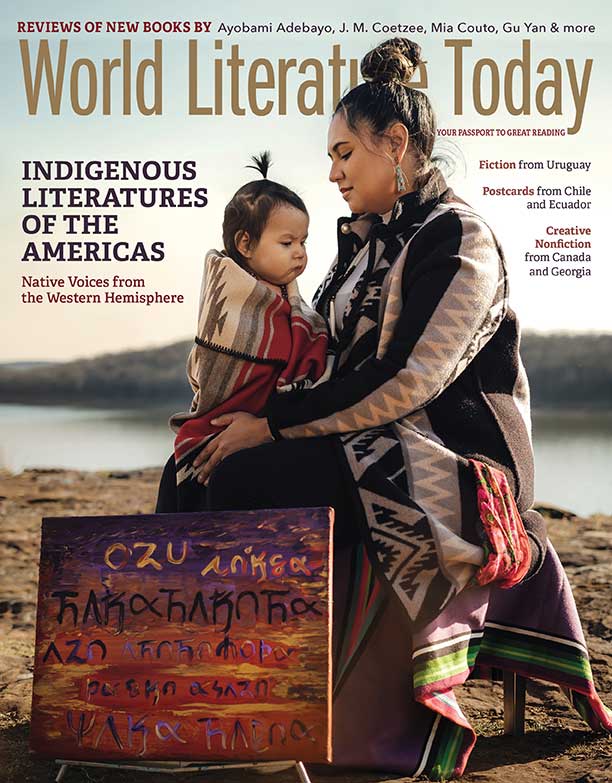Five Poems from Tutunakú
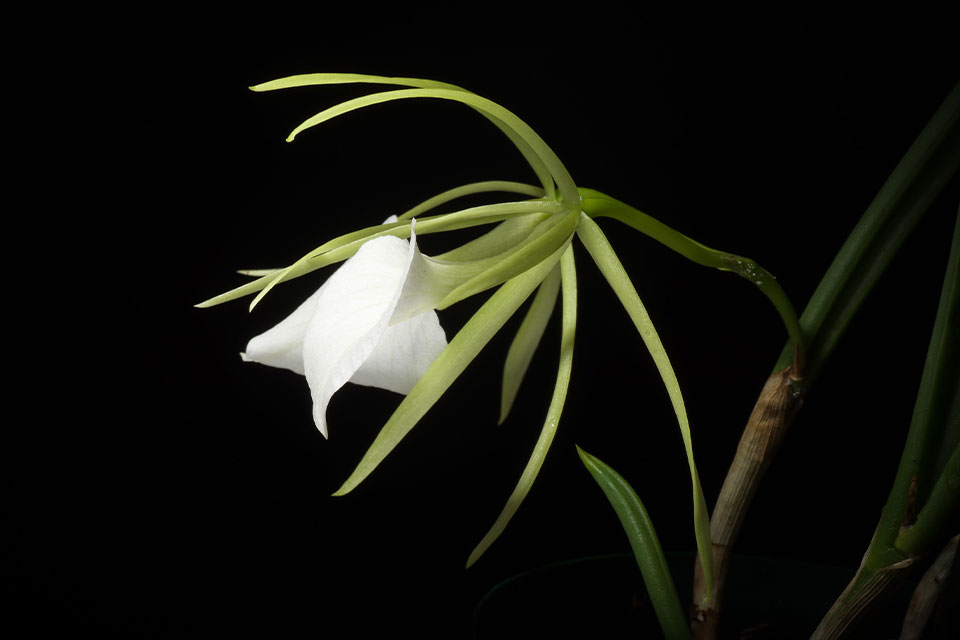
¿Tii maa papa’?
Akgtum jaxanat,
xkilhpin akgapun,
skitit xla lhtukit,
xtatsan katsisni’,
skgatanat
xmakasiyan kuyu’.
Kapsnat tani nalhkawiliyaw
xkilhtsukut kilatamatkan.
¿Quién es Luno?
Un suspiro,
labio del cielo,
masa para el atole,
diente de la noche,
menguante garra del armadillo,
página blanca
para escribir el comienzo
de nuestra historia.
Who Is Luno?
A sigh,
the sky’s lip,
masa for mixing atole,
the night’s tooth,
the armadillo’s waning claw,
a white page
for writing out the opening lines
of our history.
* * *
Kintse’ xtalapaxkin papa’
Klakgmakgalh mintapaxkit
xlakata mintalapaxkini kintse’,
makgatunu skgatana’, makgatunu katlana’,
takatsiy pi chitana kxkgapinin
chu makgsakgsaya xaxanatwa xtalhtsi’.
Cha xlimakgwa nixtsuwana’
lakgacháni kintlat
kgantati kiwi’ chu kgantati xanat
antani tlawanita aktsu mimasakg.
Mi madre es amante de Luno
Rechacé tu llegada
porque eres amante de mi madre,
cada que naces y mueres
anuncias tu arribo a sus cañadas
y seduces sus semillas flor.
Mi padre, durante tus ausencias,
sembró cuatro flores y cuatro árboles
en el nido que construiste.
My Mother Is Father Moon’s Lover
I rejected your arrival
because you are my mother’s lover,
with every waxing and waning
you announce your arrival in her ravine
and seduce her seed-filled flower.
During your absences,
my father planted
four flowers and four trees
in the nest that you had created.
* * *
Nana Tsívita I
Laa kumu lakukakgó laktsu chichakg
laa nkilhwantasanikgo sin,
nanaa xla xkinkakukayan
kxaxanatwa kxstipun.
Cha laa kaakuwa
aktsu skgata’ xakwanit,
kintilimakaxapamilh
xatuwan xkulimaxanat
kgamachi xwá nkilhtukit.
Xtakgalhutawila xla laa xlakpimin chichini’,
x’an puxkgat x’akgsawat,
stikiki xta’akgsput’tawilapalanchu k’akgstin
ka tatantlilha xchuchut wa xtasiyu
slip slip xlay xatsitsokgo xlitampachi’.
Xlakgpuwankgó lakxtakninkiwa chiwix
xalakspunpulu xtantun
xtantutsukkgoy
tani xtantupankgonit,
kaa xakkgalhkgalhitawila kitinchu
xaklikgotnamputuna xlistakna Xtakgayaw
Nana Tsívita I
Me arrullaba
en su floreada espalda
tal como las ranas se montan una a otra
cuando a gritos invocan a la lluvia de mayo.
Cuando era retoño de orquídea blanca,
machacó hojas de luna
en el rostro de mis pétalos
para que mi atole fuese el más rico.
Con su cántaro tres orejas
bajaba por agua al primer parpadeo del sol,
para luego subir por la montaña,
parecía bailar con el agua
al compás de su roja cadera.
Piedras verdes anhelaban ser acariciadas
por sus pies desnudos,
guardaban besos
en las fisuras de sus talones
y yo la esperaba para beber
el corazón de Xtakgayaw
Nana Tsívita I
She lulled me to sleep
on her flowered shoulders
just like frogs carry their young
bringing May’s rains with their croaking.
When the white orchids sprouted,
she crushed moon-white leaves
on the petals of my hands
so my atole would be the sweetest.
With her three-handled jug she went
down to the river at the sun’s first glimmer,
later while climbing the mountain,
she seemed to dance with the water
to the rhythm of her red hips.
Green rocks longed to be caressed
by her bare feet,
holding kisses
in the cracks of her heels
as I waited to drink
from Xtakgayaw Mountain’s heart.
* * *
Nana Tsívita II
Xtsuku xkuliy xaxkut
la kxchakgan kinchikkan,
xtsuku nchuwani mumu,
laa xkinkamakatsiniputunan ntu nitlan.
Xwan mpi ni tlan likgamanankan chuchut,
xlakata natiyay kiakpunkan,
nakinkamakgalhkuyatlayan
chu laktsu laktsu natlaway xmasakg kintalakapastaknikan.
Kinkamasuyunin lala tasantikan papa’,
lala naktapachiyaw chamakxkulit
xalakgtsitsakga kinchixitkan.
Nana Tsívita II
Respondía ella con un tabaco entre sus labios
cuando a espaldas de la casa
empezaba a ulular el búho,
queriendo atraer nuestra desdicha.
Prohibía jugar con el agua,
porque podría adueñarse de nuestro espíritu,
incendiarnos por dentro
y despedazar el nido de nuestra memoria.
Ella nos enseñó a coquetear con Luno
y a capturar el arcoíris
en la negrura de nuestras cascadas.
Nana Tsívita II
When the owl behind the house
began its hooting,
trying to bring us misfortune,
she replied with tobacco between her lips.
She forbade us to play with water,
because it might possess us,
scalding us from within
and wrecking our memory’s nest.
She showed us how to flirt with Luno
and how to trap rainbows
in our cascading braids.
* * *
Nana Tsívita III
Wapi nalh katilakganakgalhi xla klhkuyat,
wapi namakgaxtakg xakgsawat
chu nakinkamakglhputiniyan,
¿Ti natlawayi xtaskujut?
¿Ti nalakgamakgakglhayi nitlan ‘un?
¿Ti namalakgawitiyi mumu
chuwa ti nakinkalixakgatliyani papa’?
¿Ti natlawani xtiji nkinkuxtakan?
¿Ti na xakgatliyi ntsakglhni’
chuwa ti nakinkalilakgmaxtuyan tokgxiwa’
la natiyayi kiakpunkan?
Wa xpalakata jkatsinima,
kmakgastakmaw akgatunu talakapastakni’,
kmakgtaya ni naakgmixiyi lhkuyat
chuwa lakxtum kmakgskgalayaw mpi nataspitkgoy kinkuxtakan.
Kakgspuntlawan xtantunin
tlakg chi pulhman natalhkatawilakgoy
chuwa nichi xapamakgolhi nitla ’un.
Nana Tsívita III
Si ella deja de atizar el fuego,
si abandona el cántaro
y nos deja con la sed en la lengua,
¿quién hará su trabajo?
¿Quién espantará el rostro del mal aire?
¿Quién desmayará al búho
y hablará de la luna?
¿Quién hará el camino de nuestra mosca?
¿Quién les hablará a las gotas
y nos liberará con hojas de sauco
cuando tome nuestro espíritu?
Por eso aprendo de ella,
cosecho con ella cada pensamiento,
le ayudo a mantener la llama del fogón
y juntas aseguramos el regreso de nuestra mosca.
Camino sobre sus pasos
para remarcar sus huellas
y que ningún viento las desvanezca.
Nana Tsívita III
If she stops feeding the fire,
if she abandons the water jug
and leaves us with thirsty tongues,
who will do her work?
Who will scare away evil spirits?
Who will silence the owl
and tell us about the moon?
Who will make the journey to know their kuxta?
Who will speak with the raindrops
and cure us with elderberry leaves
to liberate our spirits?
This is why I learn from her,
harvest each thought with her,
help her stoke the cooking fire
and together we assure our kuxta will return.
I walk in her footsteps
to deepen her footprints
so the wind will never erase them.
Translations from the Spanish & Tutunakú
Translators’ Note
by Wendy Call & Whitney DeVos
These poems are drawn from Cruz Alejandra Lucas Juárez’s debut collection of poetry, published in 2021, by the University of Puebla in Mexico, when the poet was twenty-four years old. The book’s title, Xlaktsuman papa’ / Las hijas del Luno, (“Daughters of Luno”) references the Tutunakú belief that the moon (papa’) is the metaphorical father of all women. He bestows on them the gift of their womanhood, as regulator of the menstrual cycle; his monthly arrival is characterized as an amorous affair. The Spanish word for moon, luna, is gendered female. In the Spanish versions of her poems, Lucas Juárez changes the gender to male, luno, to match the Tutunakú people’s perception.
Lucas Juárez writes and publishes her work bilingually, in Spanish and her home language, Tutunakú. The word the Tutunakú use to refer to their community is “Litutunaaku” or “people who belong to the culture of the three hearts.” In Tutunakú culture, the three hearts refer to the brain, the anatomical heart, and the stomach—associated with memory, life, and emotional experience, respectively. Together, these interdependent hearts sustain “three consciousnesses.”
These are the first translations of Lucas Juárez’s poems into English. We worked primarily from the Spanish versions, collaborating directly with the poet to bring some of the metaphorical and sonic qualities of the Tutunakú versions into our English translations.
